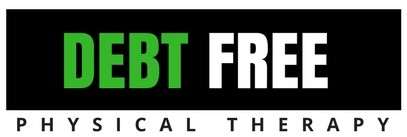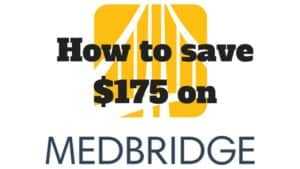Travel Healthcare Tax Breakdown
by DebtFreeEmma | Mar 26, 2018

Travel Healthcare Tax Breakdown: With Joseph C. Smith

This weekend I had the amazing opportunity to speak with Mr. Joseph C. Smith, RRT, EA, MSTax, and the creator of Traveltax.com. We went over key and frequently asked tax topics for healthcare travelers. Our discussion included what is a tax home, what is a permanent home, what deductions travelers can take from their taxes, and best practices to keep while traveling from a tax perspective. This post includes information from our discussion, from his travel tax website, and from the IRS publication 463.
In this post, you will learn:
-What is traveltax.com
-What is a “tax home”?
-How can you maintain your tax home?
-Best practices for travel physical therapists and healthcare professionals to prepare for tax season
-Why I recommend traveltax.com
and more………
What is Traveltax.com?
Mr. Joseph C. Smith RRT, EA, MSTax created Traveltax.com to help travel therapists with their tax preparation. Joseph devotes his business to helping nomadic healthcare professionals, entrepreneurs, as well as other mobile professionals with their tax questions and needs. Joseph is uniquely positioned to help answer traveler tax questions because he was actually a former traveling respiratory therapist! But in addition to that he has an amazing list of credentials including current IRS enrolled agent and degrees in accounting and taxation.
What is a Tax Home?
A tax home, in simple terms, is where one’s main source of work or income is on a regular basis. If you don’t have a main place, like many travelers, then your tax home becomes the where you maintain your permanent home and one that you incur expenses for while you are away from this home. As a result of having to maintain two housing locations for your occupation, you may become eligible for tax-free housing, meals and incidental stipends.
How can you maintain your tax home?
The best rule of thumb for travelers desiring to maintain their tax home is to have regular employment within your tax home area, have a permanent residence at your tax home, and return to maintain ties to your tax home.
How long must I return home to maintain my tax home ties?
The rule of thumb is to return to your tax home around 30 days a year. When I asked Joseph if this needs to be all at one time, he reported that this time doesn’t not need to be consecutive. If you spent for example, 2 weeks at your permanent/tax home every month, you could feel pretty confident that you are correctly maintaining your tax home.
Can I claim my family’s home as my tax home?
This is okay as long as you are maintaining sufficient ties to your tax home and that you are continuing to pay fair market value rent or mortgage. Remember, it doesn’t make sense to get the housing stipend if you do not require it to keep your housing! Speak with Joseph or do further research to make sure you are fulfilling all the requirements!
How far must I travel away from my assignment to receive tax-free stipends?
A lot of recruiting companies provide mileage numbers (usually 50 miles) but it really comes down to that you cannot reasonably commute back home. If you cannot reasonably commute back home, then you must find a place to sleep and eat, and therefore, you need the housing and meal stipends. Joseph on his website also suggests that if you are on the bubble, a 90 min or more commute could be a fair assumption to be unable to commute back home.
Remember, there is the temporary job rule too! This rule, often termed the “12 month” or “one year” rule is where you cannot work in the same location for a year or anticipate working in the location for a year.
What if I don’t have a tax home?
Perfectly fine! You can travel but with taxable stipends. You could also work as a contractor or independent employee.
As a traveler, can I deduct expenses?
Unfortunately, as of 2018, business and travel deductions have been eliminated. This may go back in effect in 2026.
Interestingly, if you are an independent employee, you get to have some sweet perks! Wit the new tax laws, you can still claim these and many more deductions. In addition, you will only be taxed on 80% of your income!
Why keep these receipts even if I can’t deduct them in my upcoming tax years:
In case of an audit, you want to have proof that you actually had to incur double your expenses.
What’s the best ways to keep this information?
I suggest you keep hard copies (paper copies) as well as electronic.
Keep all of your contracts, travel receipts, housing receipts, meal receipts, gas receipts and other important material. On traveltax.com, Joseph writes, “it is the actual receipt that the IRS would require from you. Save a copy on your computer/phone is also acceptable”.
If you are driving, a mileage log is important so that you can provide your commuting distance. Include Google maps with the calculated distance page with your records!
I try to make a separate folder for each contract that contains each assignments contract plus these receipts so you keep your dates prearranged. It is helpful keep your information organized so that you can keep track of your earnings, key dates, and easily provide any paperwork needed for your taxes or during an audit.
You do not need to save grocery or food receipts as this is assumed when you claim you’re away from home. Basically, they don’t care about that $2.00 Big Mac from McDonalds; they want to see the big expenses like rent!
Online payments and banking will also save you valuable time, as these often save copies of your purchases and payments.
Why I recommend traveltax.com:
Mr. Joseph C. Smith has been doing this for years! But even more important, he actually worked in the medical travel world! Joseph was a respiratory travel therapist for several years!
His knowledge of taxes is evident when you talk with him and he also has the credentials to back up this knowledge! He has a bachelor’s degree in accounting and a master’s degree in taxation (and bible!). He is an IRS enrolled agent, a member of the national association of tax professionals, a member of the national association of enrolled agents, an adjunct instructor in taxation at the Northeast Community College, and a speaker at many conferences including TravCon (conference for traveling healthcare professionals). This guy lives and breathes taxes!
But most importantly, here is here to help! There motto is “We never charge to chat!”. This article is just a summary and an attempt at simplifying the complex tax system in the United States. Everyone’s situation is specific and as a result, I encourage you to speak with Joseph yourself!
**Disclaimer: I am not, nor attempting to be, a tax advisor. This information was gathered from publication 463, traveltax.com, and through discussion with Joseph C. Smith from traveltax.com. Taxes are personal. I don’t know your situation and thus it is important to not assume you are performing your taxes correctly from this article-as this article is a summary and there are many more nuances to travel taxes that are beyond my scope. For more information, please contact your tax advisor or Joseph at traveltax.com!







